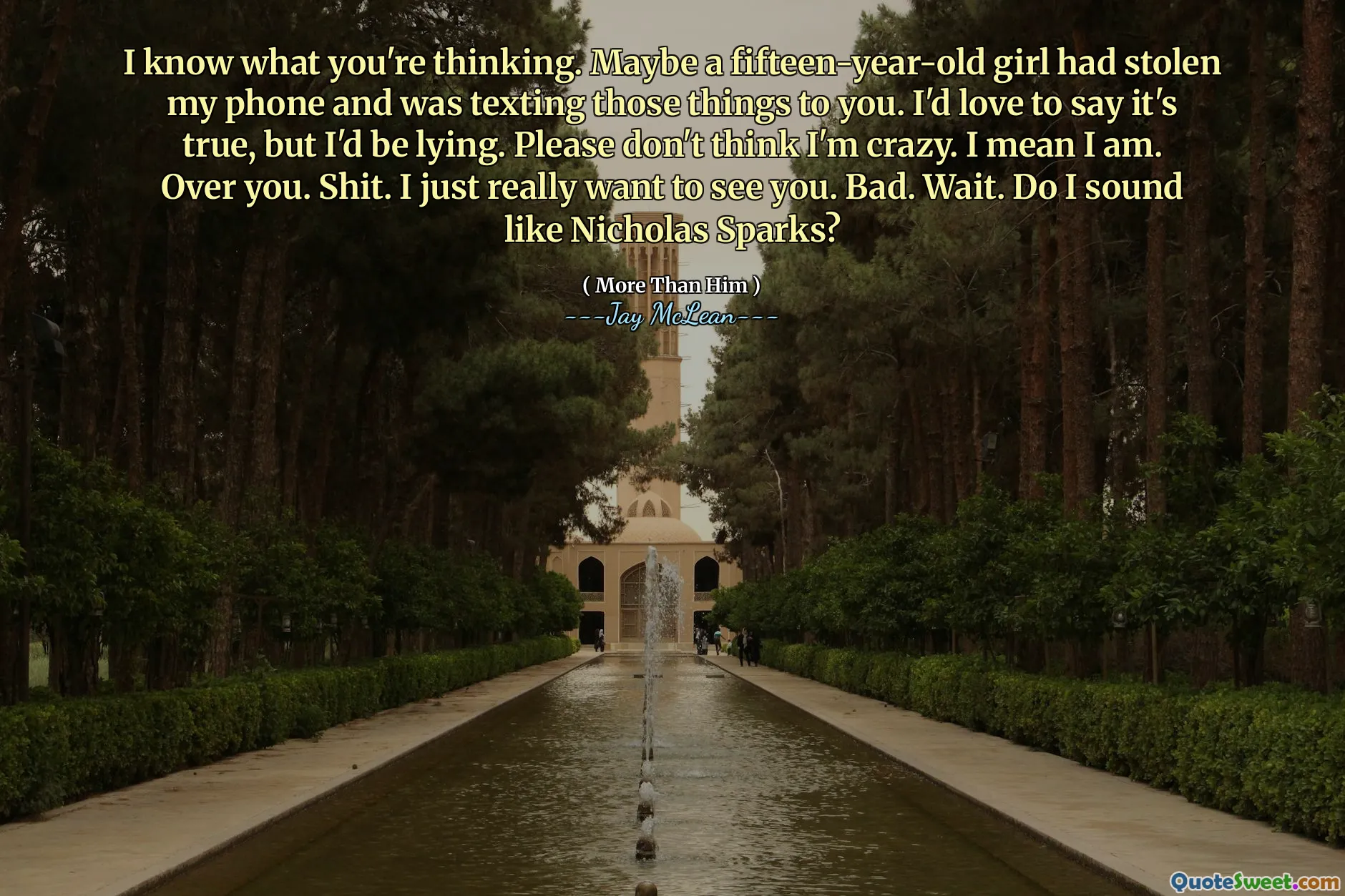
I know what you're thinking. Maybe a fifteen-year-old girl had stolen my phone and was texting those things to you. I'd love to say it's true, but I'd be lying. Please don't think I'm crazy. I mean I am. Over you. Shit. I just really want to see you. Bad. Wait. Do I sound like Nicholas Sparks?
This quote explores the complicated emotional landscape of vulnerability, humor, and longing in romantic contexts. It opens with a playful deflection, where the narrator imagines a fantastical excuse for their own text messages—blaming a fifteen-year-old girl who supposedly stole their phone. This serves as a humorous buffer before admitting an honest and raw truth: the messages are genuinely theirs, revealing their emotional investment. What follows is an unfiltered confession of being 'crazy,' but specifically 'crazy over you,' capturing the essence of over-the-top feelings that love can ignite. The fragmented structure and informal tone, with short sentences and exclamations, simulate the spontaneous, sometimes chaotic thought processes that come with intense emotions.
Importantly, the narrator not only conveys emotional openness but also a self-awareness and vulnerability that many can relate to when grappling with romantic feelings. The sudden reference to Nicholas Sparks—a renowned author known for his emotionally charged romantic novels—adds a layer of self-deprecating humor, acknowledging that their expression of feelings might be overly dramatic or sentimental. This blend of sincerity and lightheartedness makes the passage resonate as authentic and relatable.
In sum, this quote effectively captures the paradox of wanting to be genuine but fearing judgment, the chaos of emotions that love stirs within us, and how humor can sometimes be a coping mechanism to navigate those feelings. It invites readers to recognize and embrace their own messy, imperfect expressions of love.






